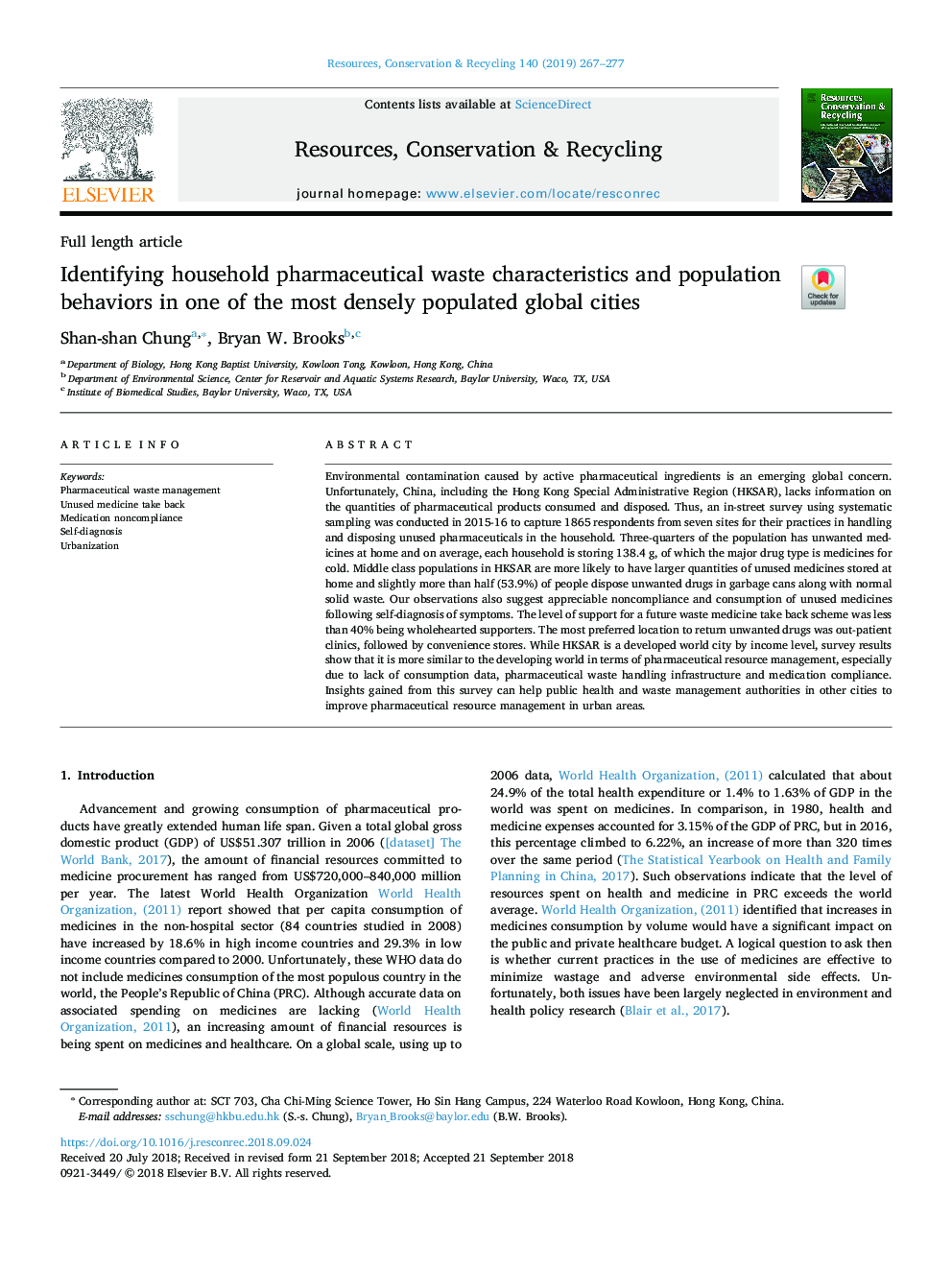| Article ID | Journal | Published Year | Pages | File Type |
|---|---|---|---|---|
| 11027512 | Resources, Conservation and Recycling | 2019 | 11 Pages |
Abstract
Environmental contamination caused by active pharmaceutical ingredients is an emerging global concern. Unfortunately, China, including the Hong Kong Special Administrative Region (HKSAR), lacks information on the quantities of pharmaceutical products consumed and disposed. Thus, an in-street survey using systematic sampling was conducted in 2015-16 to capture 1865 respondents from seven sites for their practices in handling and disposing unused pharmaceuticals in the household. Three-quarters of the population has unwanted medicines at home and on average, each household is storing 138.4 g, of which the major drug type is medicines for cold. Middle class populations in HKSAR are more likely to have larger quantities of unused medicines stored at home and slightly more than half (53.9%) of people dispose unwanted drugs in garbage cans along with normal solid waste. Our observations also suggest appreciable noncompliance and consumption of unused medicines following self-diagnosis of symptoms. The level of support for a future waste medicine take back scheme was less than 40% being wholehearted supporters. The most preferred location to return unwanted drugs was out-patient clinics, followed by convenience stores. While HKSAR is a developed world city by income level, survey results show that it is more similar to the developing world in terms of pharmaceutical resource management, especially due to lack of consumption data, pharmaceutical waste handling infrastructure and medication compliance. Insights gained from this survey can help public health and waste management authorities in other cities to improve pharmaceutical resource management in urban areas.
Keywords
Related Topics
Physical Sciences and Engineering
Energy
Renewable Energy, Sustainability and the Environment
Authors
Shan-shan Chung, Bryan W. Brooks,
